Improving waste recycling in Brazil
reciChain is a digital ecosystem that enables Brazilian brand owners, like Coca Cola, to invest in social waste initiatives, for them to scale their recycling capacity. Tokenising these investments allows for proving EPR compliance and tracking its impact on Brazil’s waste problem.
My role
Product directorSystem designer
My contribution
Project coordinationSystem design
Concept design
Design direction
Pilot design
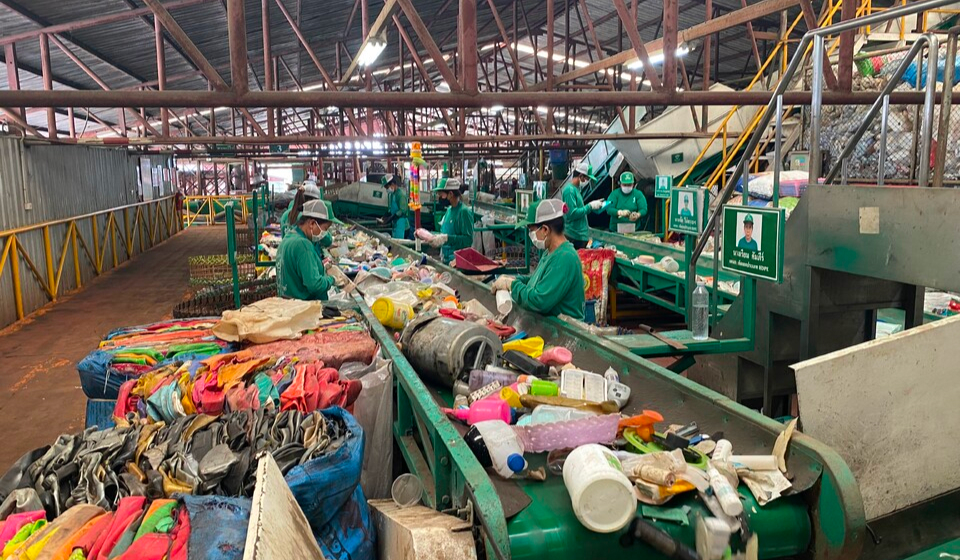
The life of waste pickers in Brazil is significantly improved through recycling infrastructure, but there is a lack of it.
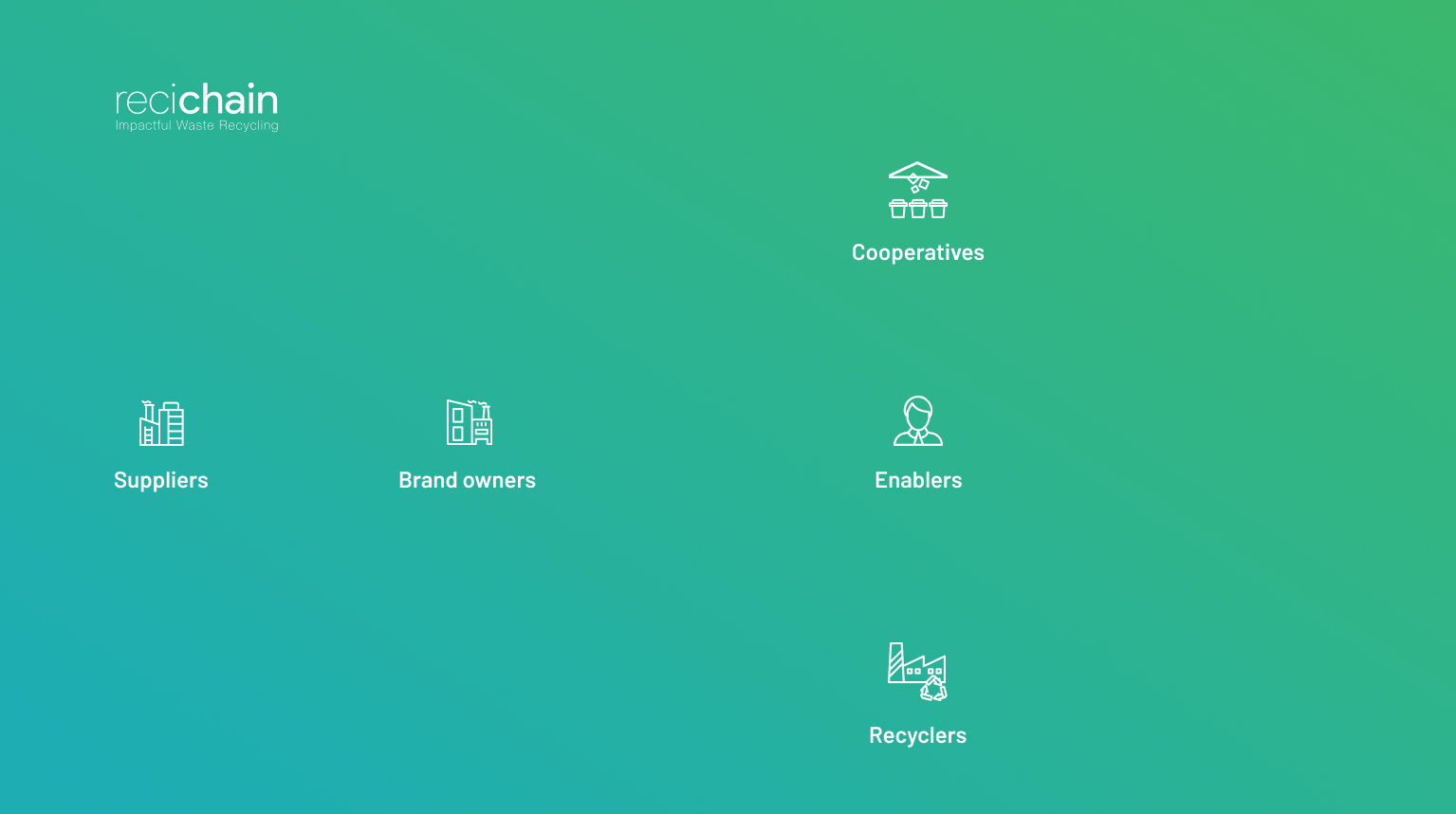
reciChain allows the entire ecosystem to create additional segregation infrastructure, allowing for more recycling.
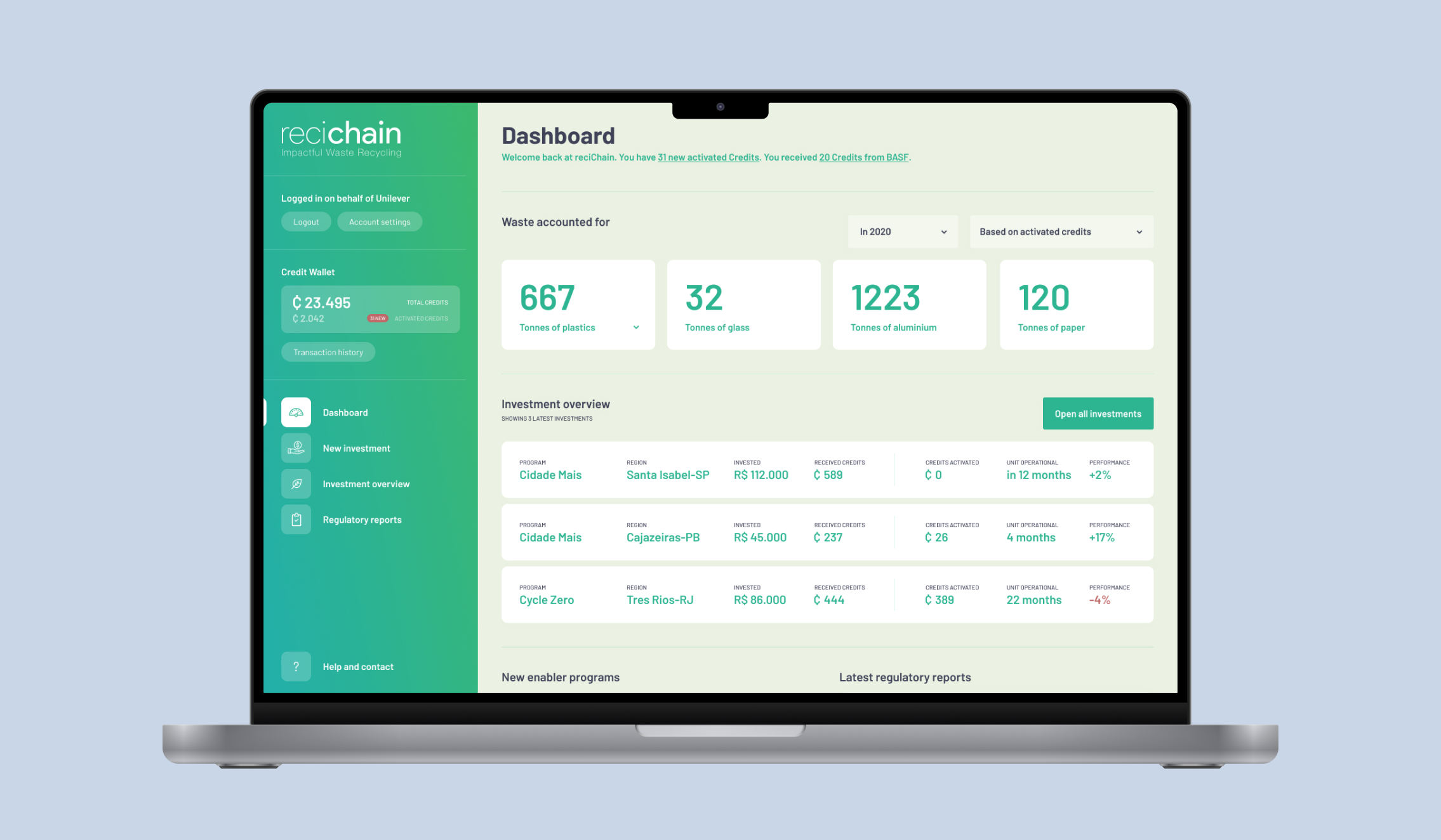
Brand owners buy amounts of 'future segregated materials'. These investments are used to build the infrastructure.
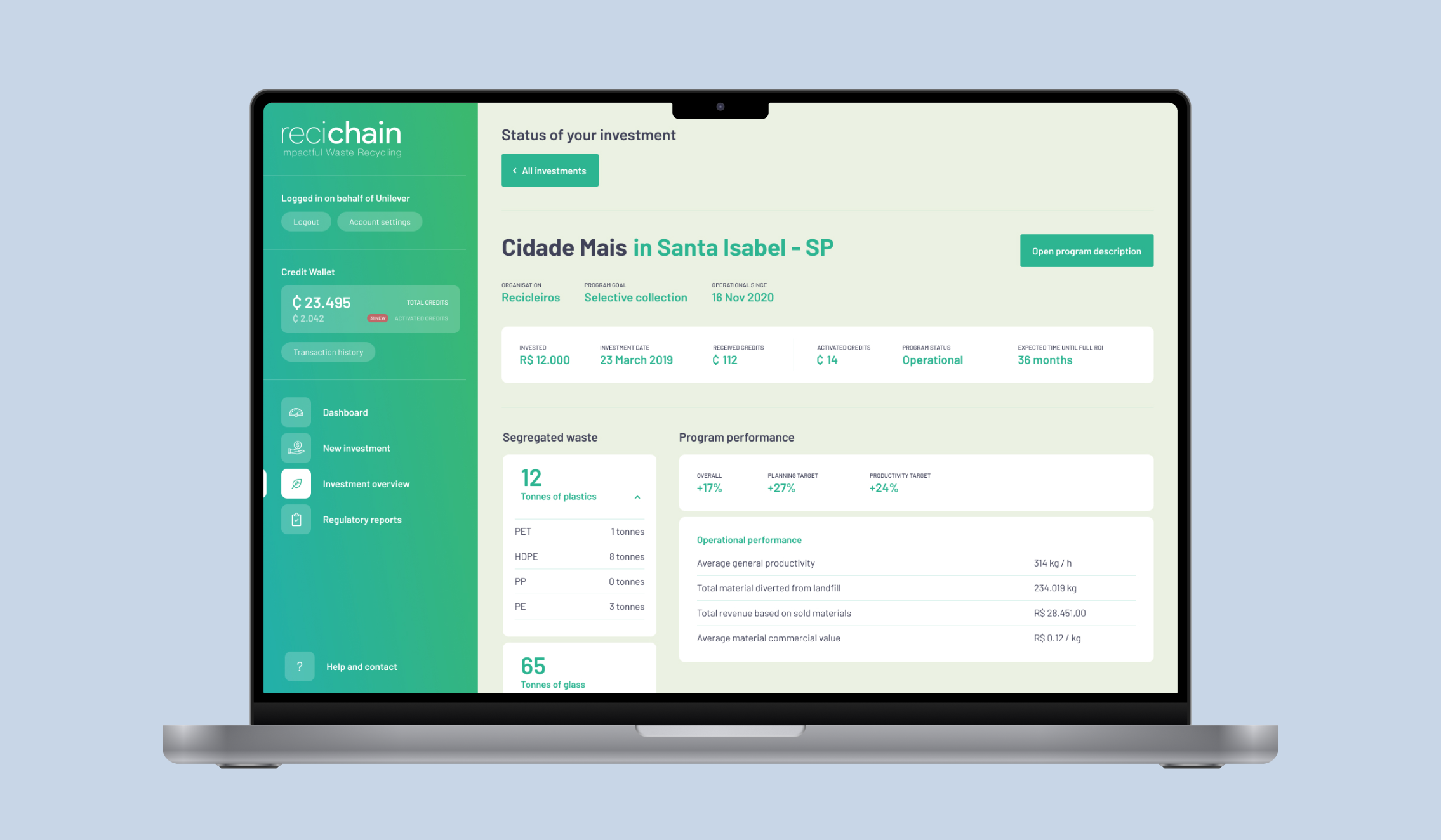
Once operational, the segregated materials are being tracked and turn past investments into certificates.
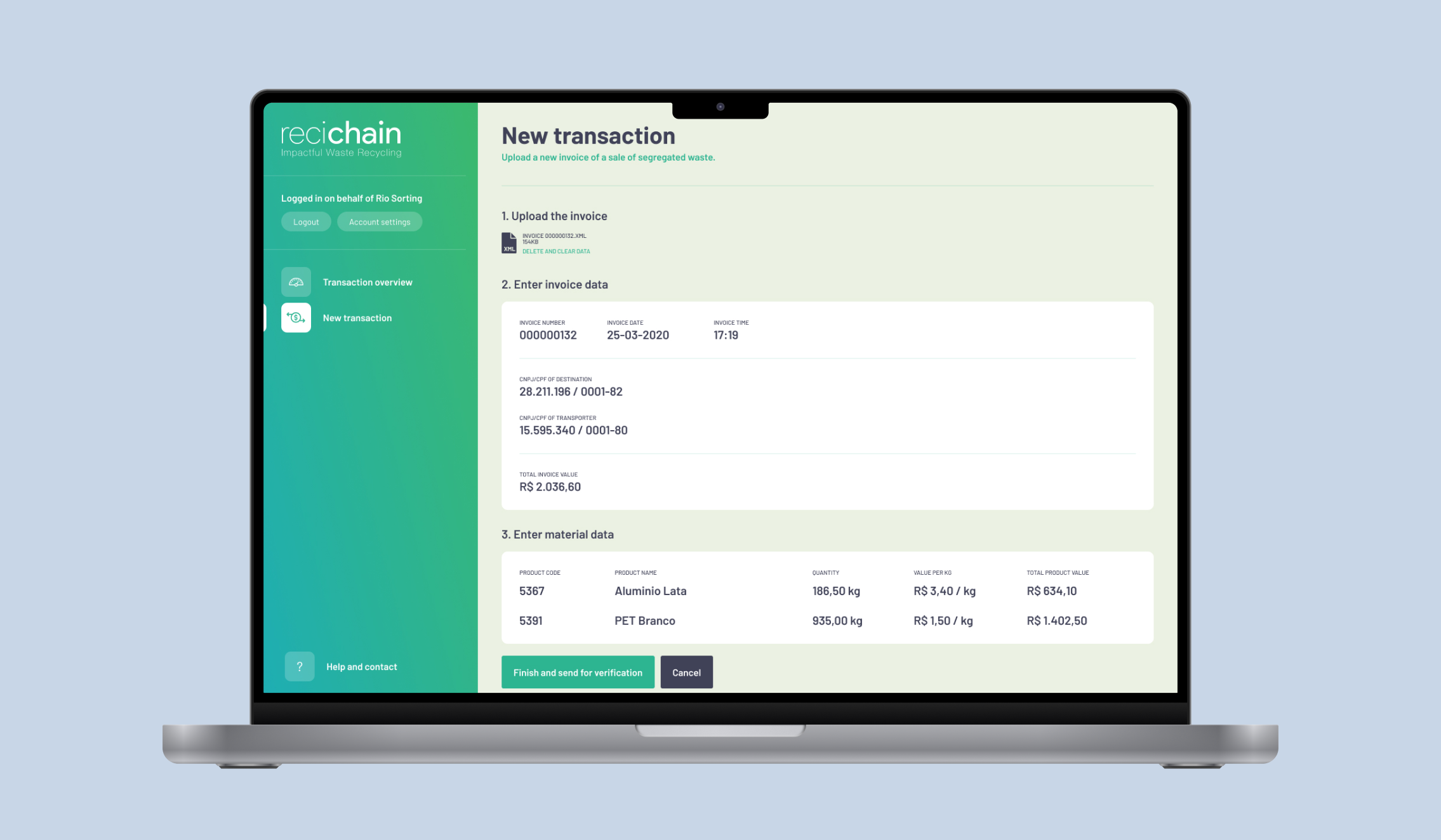
Waste pickers and segregators upload their invoices of sold materials onto reciChain and prove segregation happened.
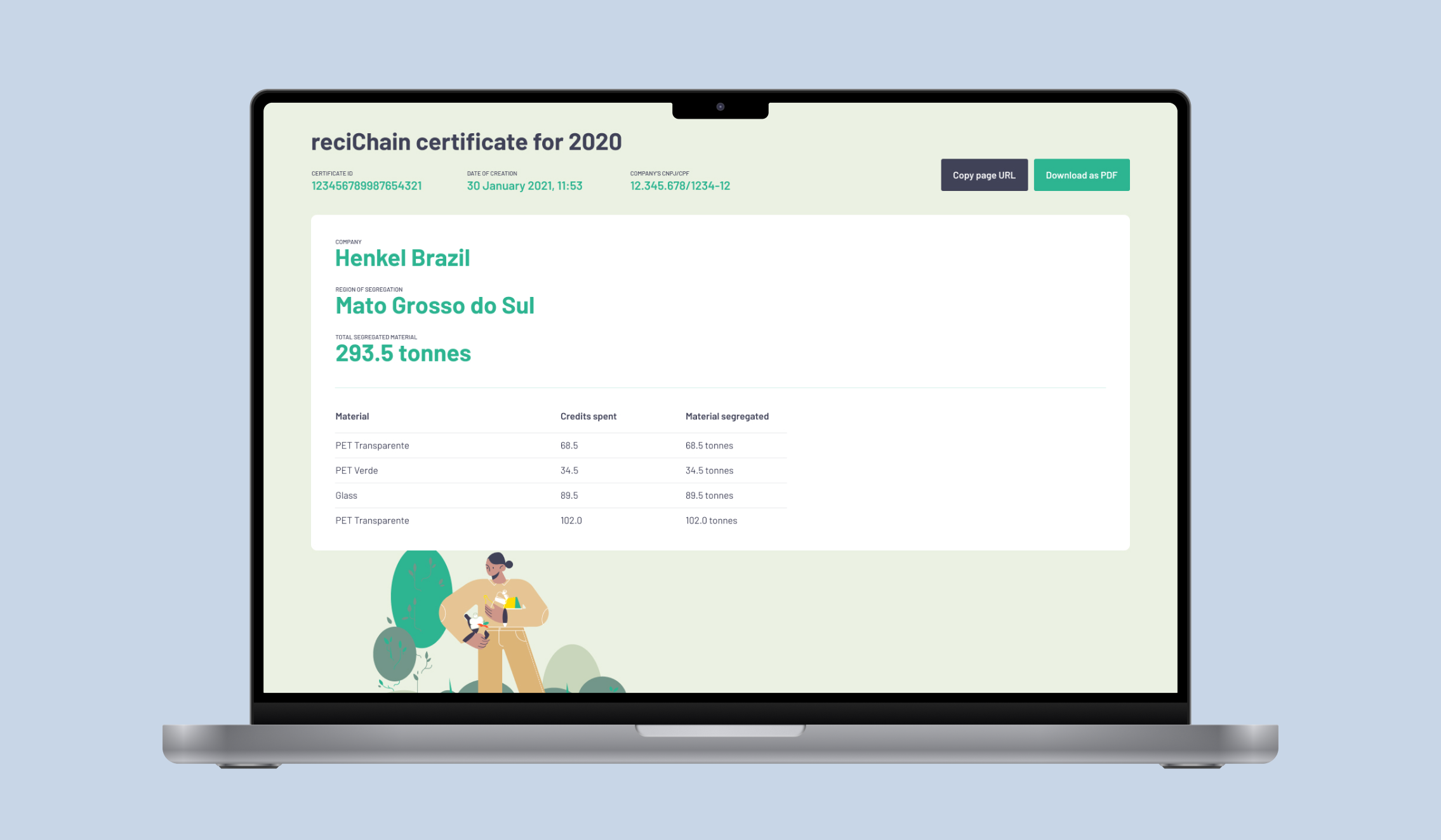
Regulators can check investors’ compliance to EPR through the certificates, including the amount of material saved from landfills.
The project context
Brazil faces a challenge in managing its waste, with less than 5% of all waste currently being recycled due to a lack of recycling infrastructure. In a collaborative effort, BASF, Kryha and a consortium from suppliers to recyclers developed reciChain, a digital ecosystem designed to increase and improve social waste recycling initiatives common in Brazil. After a pilot, the initiative was discontinued during the pandemic.
The process and results
After research and a Design Sprint in Brazil, we designed the system in 3 steps. In each step we improved and extended the solution with the goal to create a fully working product. The pilot showed that brand owners could invest in social waste initiatives and get idle credits in return. Those investments allowed recycling infrastructure to be built. Recycled waste would be tracked and turn the credits into certificates that can be used by the brand owners to comply to Extended Producer Responsibility.
The product
A digital platform that tokenises recycled waste and allows collaboration between the different parties to improve the Brazilian waste ecosystem.
Why I liked this project
Using blockchain technology to address the waste and recycling challenge in Brazil showed there are technological and innovative approaches to environmental issues.